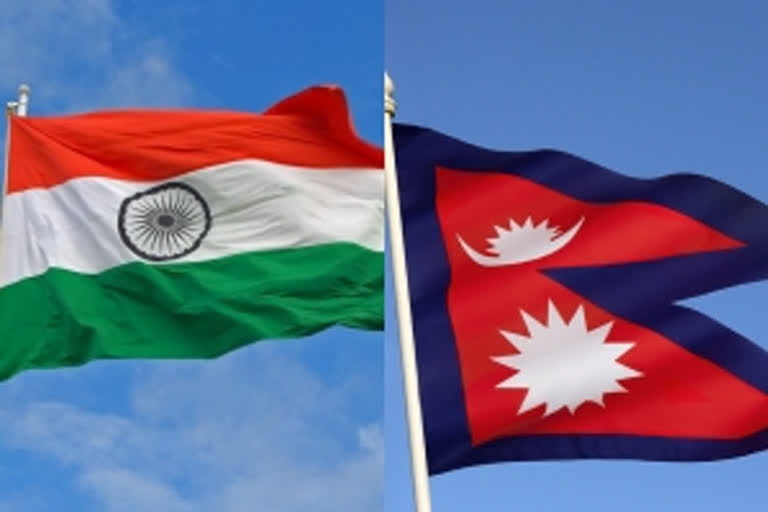New Delhi: India and Nepal have a history of age-old relations in trade and commerce, with the latter considering the former as one of the largest trade partners and a source of foreign investment.
However, during the ongoing global pandemic, relations between both countries have been strained owing to a territorial dispute, resulting in subsequent border tensions.
India and Nepal have claimed the same territory on their political map! Nepal proclaims 400 sq km of Indian land in Kalapani, Lipulekh and Limpiyadhura as part of their territory, which became the main reason for bilateral instability.
Amid all the disparities between both the countries, the deep trade relations that India and Nepal share, have largely been affected.
However, keeping in mind the economic condition - that has been hit hard due to the pandemic and other related factors like political differences, including Chinese hegemonic strategy to dominate - both Nepal and India decided to come to a truce where they agreed to continue discussions on bilateral matters in the future and focus more on border infrastructure and other developmental projects.
Now the question is whether or not such approach by both the governments will open window to end the on-going dispute or improve the trade relationship between both the countries and restrict China’s attempt to replace India’s position in Nepal’s economic and political domain.
Speaking to ETV Bharat, former diplomat JK Tripathi said, "Certainly the border issue has affected the trade relations between the two nations mainly because of coronavirus, border tension with Nepal, the sanction of check post and pillars by Nepal along the border in plain areas. But now, Nepal has already agreed to remove two-three check posts and is keen to opened border more liberally for trade."
He says: "This is also because, howsoever, China plays its role in Nepal, or Nepal is influenced by China or being eluded by China, but until and unless China gets everything ready for Nepal, like the road infrastructure and rail infrastructure from Lhasa all the way to Kathmandu and down up to the Indian border, Nepal has to depend on India for trade or through India by sea route, so certainly, even if Nepal doesn’t like, yet it has to depend on India, also Nepal’s trade is badly affected."
Adding to that, he said," Nepali government are well aware of the fact that it is in the interest of people and the government. This will certainly boost the trade and the confidence of the people and the government, no matter how alienated government might think it is from the Indian government."
He points out that, the people of Nepal are also not very happy with the government as there have been protests, sit-ups, so by such approach, the message will be sent to them from the Indian side that we are all for developing good relations with Nepal.
"It is in the interest of Nepal and India to have Nepal pleased or satisfied but not by the way of appeasement as India has also pumped in a large amount of money. Both the government have committed that the existing on-going projects will not be affected for any political differences that have arisen between the two nations," Tripathi points out.
He explains, "Nepal is a landlocked country and for a landlocked country, there must be a trade route for import and export and for Nepal, it had been only India so far. All goods meant for Nepal from any part of the world, are to be sent via India, they land at Indian ports and finally are transported to Nepal.
